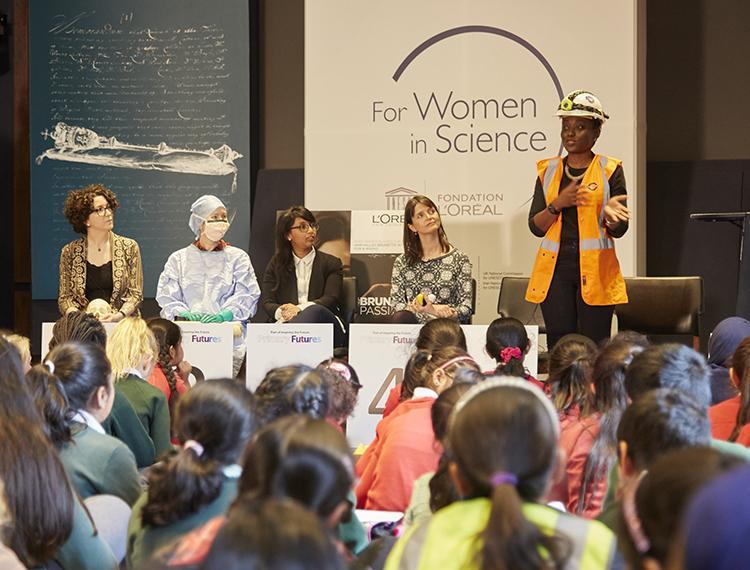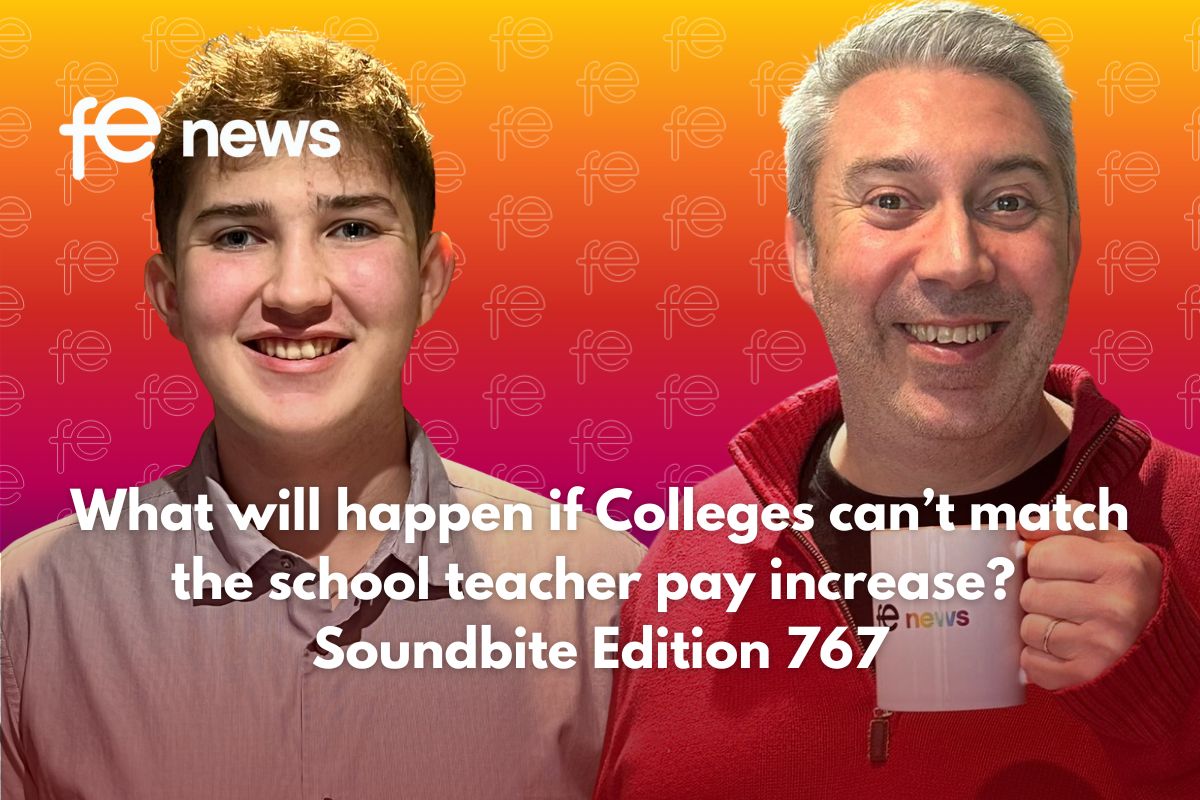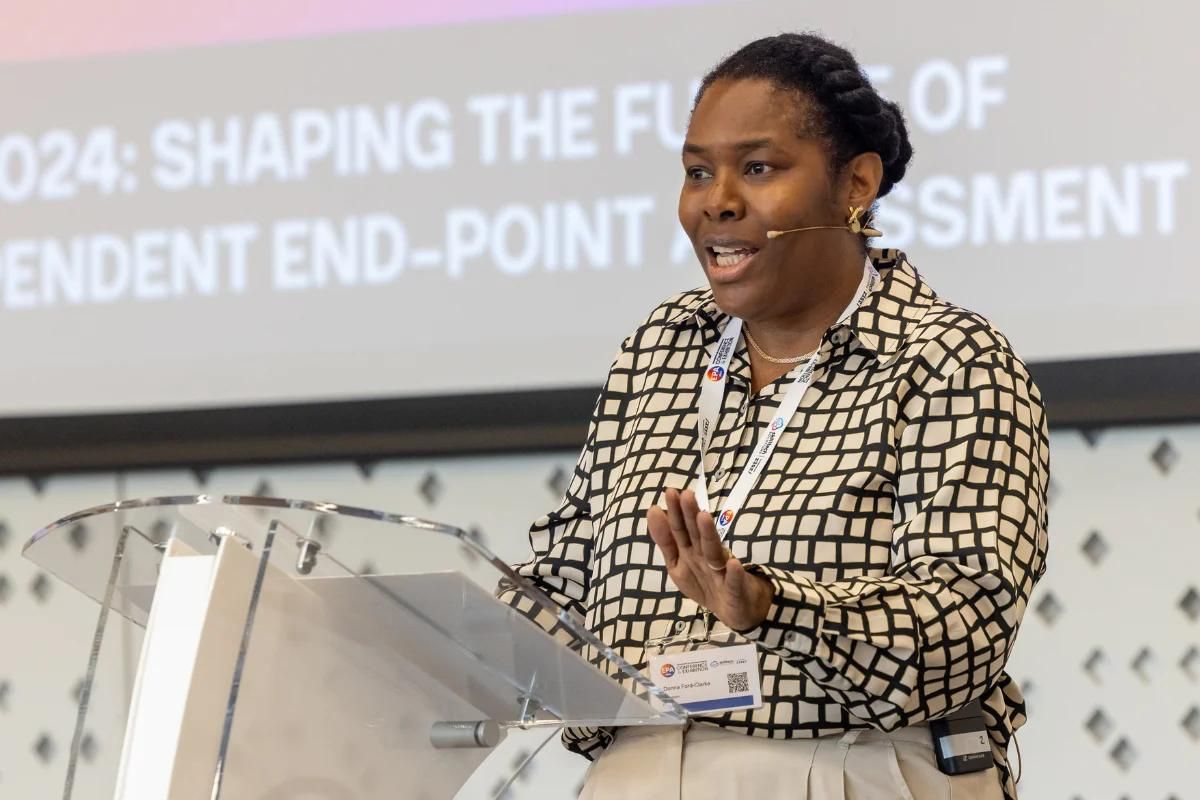NEW PARTNERSHIP TO LINK 50,000 CHILDREN WITH CAREER ROLE MODELS

Today (7 Sept), scientists, educational specialists and the media joined L’Oréal UK&I and the charity Education & Employers at the British Science Festival to launch a new partnership aimed at connecting 50,000 primary school children to inspirational female science professionals through activity sessions in schools.
Together they hope that access to role models under the ‘Inspiring The Future, Women In Science’ programme will motivate the children and nurture an enduring passion for the sciences. The selection of female professionals also aims to tackle gender stereotypes – currently women make up only one in five of the STEM workforce in the UK[3].
So far there are 170 women signed up to the programme, including vets, pharmacists, biomedical scientists, engineers and architects. Many are involved in L’Oréal UK&I’s For Women in Science programme which awards five inspirational female post-doctoral researchers with a fellowship worth £15,000 every year.
From today, the two organisations are calling on more women working in science to sign up here to volunteer an hour of time to share their valuable experience with primary school children.
The move comes as research suggests that early years’ careers intervention can make a difference, as Education & Employers’ research found that 90% of primary teachers think child engagement with role models has an impact on academic achievement. Indeed, almost half of students studying science at university say they fell in love with the subject while at primary school[4].
L’Oréal UK&I’s research into the behaviour of 16 to 18 year olds when selecting their A-level subjects shows that the absence of a professional role model can affect a child’s long-term academic pathway.
The beauty giant found that only 11% of students picked their chosen subjects because of the advice from someone they know who is doing the career they aspire to[2]. In the absence of these role models, 21% had received encouragement from a teacher, while 18% turned to their parents for advice[5].
Yet with only 14% of parents surveyed stating that they work in the sector, it is perhaps not surprising that over half of the students surveyed (57%) were not studying any science subjects at A-level[6]. Confidence was also holding the youngsters back, as 41% said they were not studying these subjects because they felt they were either not good at science, or because it was not for “people like me” [8].
Vismay Sharma Managing Director of L’Oréal UK & Ireland said: “We hope that by showcasing female scientists in schools we can encourage children to feel confident and enthusiastic about science, and ultimately motivated to continue exploring this exciting sector. As part of this, we especially want to inspire girls and boost the number of female scientists in the UK.”
Nick Chambers, CEO of the charity Education and Employers said:
“Access to professionals helps young people to connect their classroom studies to the real world. This is really important in nurturing passion for a subject. Only 14% of parents surveyed by L’Oréal UK&I work in the sector. We want to make an early intervention and form what we hope will be enduring relationships between schools and professionals to inspire children”.
Katherine Mathieson, Chief Executive of the British Science Association said:
“We’re honoured to support this amazing initiative from L’Oréal by providing the British Science Festival as a platform for its launch. Over the coming years the British Science Association is putting a big emphasis on improving diversity in the STEM sector. The ITF partnership is a great example of this as role models, especially those who break down stereotypes, play a huge part in inspiring young people to follow their dreams and passions.”
At the launch today, Nick Chambers will be joined by Shakila Bik, L’Oréal Scientist and programme volunteer; Katherine Mathieson, CEO of British Science Association and the Cognitive Neuroimaging expert Professor Gina Rippon.
Together, they will discuss the value of early role model intervention in children’s academic attainment, the importance of female role models in male dominated careers and how the partnership will seek to encourage up to 50,000 children to continue to study and enjoy science.
The partnership with Education & Employers is the latest in L’Oréal UK & Ireland’s range of programmes to promote and support science and help tackle the underrepresentation of women in science-based professions.
L’Oréal UK&I research referred to in the release was conducted by YouGov in April 2017 among 700 16-18 year olds and 737 parents of 5-18 year olds.
Education and Employers research referred to in the release was collected by Yougov in April 2017. 478 primary schools participated in the survey.
According to research from Education & Employers ‘Teachers Perception on the impact of the engagement with the world of work on students’ academic achievement in primary education’. When asked ‘Do you think that involvement in activities with employers like the ones listed above can have any impact (whether positive or negative) on the academic achievement of pupils?’ 90% of respondents selected ‘yes’
When asked as part of the 2017 L’Oréal survey ‘Which, if any, of the following were reasons why you chose to take the A-Level (or equivalent) subjects that you did?’ 11% of respondents aged 16-18 years selected ‘I picked my chosen subject(s) based on advice from someone who is doing the same career I want to do’
According to WISE ‘Women in the STEM Workforce 2016’ report, women made up 21% of the core STEM workforce
According to NUS Insight survey, conducted in May 2016 on behalf of L’Oréal. When asked ‘At approximately what age did you become interested in science?’ 48% of respondents said 11 years old or younger
When asked as part of the 2017 L’Oréal survey ‘Which, if any, of the following were reasons why you chose to take the A-Level (or equivalent) subjects that you did?’ 21% of respondents selected ‘A teacher encouraged me to study the subject(s)’. 18% selected ‘My parent(s) encouraged me to study the subject(s)’
When asked as part of the 2017 L’Oréal survey ‘Are you currently or have you previously been employed in a science-related line of work?’ 7% of parents selected ‘Yes, currently’ and 7% selected ‘Yes, I used to be but I am not currently’. When asked as part of the 2017 L’Oréal survey ‘Are you currently studying any science subjects (e.g. Biology, Chemistry, Physics)? 57% of respondents aged 16-18 selected ‘No, I am not’
‘When asked as part of the 2017 L’Oréal survey ‘You said you are not currently studying any science subjects… Which, if any, of the following are reasons for this?’ 13% of respondents aged 16-18 selected ‘I don’t think science is for people like me’ while 28% selected ‘I don’t think I’m good at science’
About the For Women in Science programme: The L’Oréal-UNESCO For Women In Science international programme was founded eighteen years ago by L’Oréal and UNESCO on the premise that ‘the world needs science and science needs women’ Over 2000 women from over 100 countries have been recognised for their research and received funding to further their studies since the programme was founded.
The UK and Ireland Fellowships were launched in January 2007. The Fellowships are run in partnership with the UK National Commission for UNESCO, the Irish National Committee for UNESCO with the support of the Royal Society.
About L’Oréal UK & Ireland: L’Oréal established the UK & Ireland subsidiary in 1932, which is today L’Oréal’s fourth largest subsidiary worldwide. Its 28 international brands are present across all categories of the cosmetics market, including salons, boutiques, mass-market distribution, department stores, pharmacies, medispas, travel retail and e-commerce.
L’Oréal UK & Ireland employs 4, 477 people in its two distribution centres and corporate offices in London, Dublin and South Wales. It is one of the UK’s leading graduate recruiters, providing 1 in 8 graduate placements within UK FMCG. L’Oréal UK & Ireland participates in the International and National For Women In Science programmes and supports youth science education through the L’Oréal Young Scientist Centre at the Royal Institution.
About Inspiring the Future: Inspiring the Future is run by the charity Education and Employers, to connect state schools and colleges with employers and people from the world of work. Its range of programmes have been developed following extensive consultation with range of stakeholders – employers, education, government, third sector and intermediaries. More than 35,000 volunteers have signed up to date to donate their time and talk about their profession with pupils of all ages.








Responses